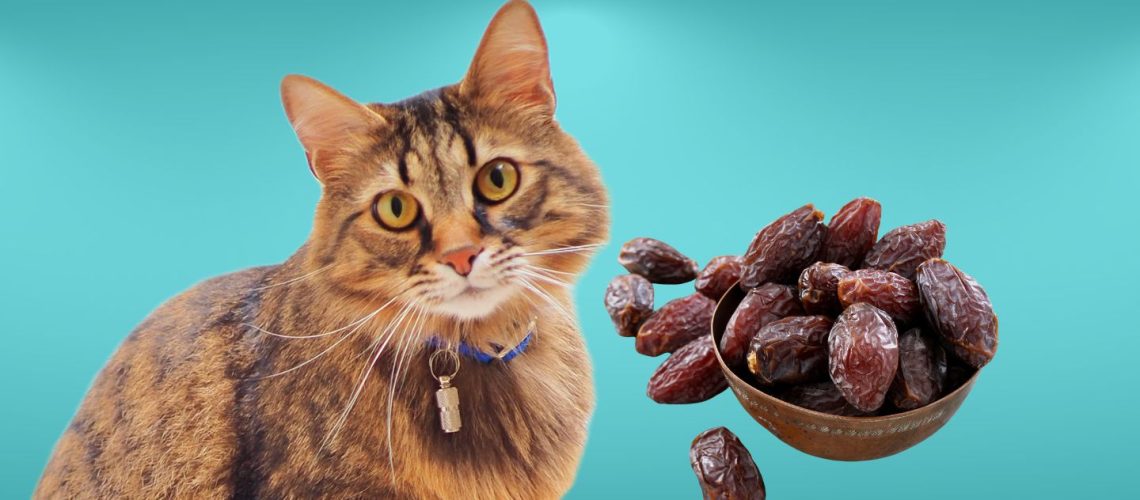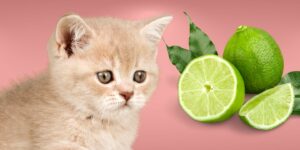The short answer is no, cats should not eat dates. Dates are not toxic to cats, but they are not suitable food for them either.
Cats are obligate carnivores, which means that they require a diet that is high in protein and fat from animal sources.
Dates, on the other hand, are a type of fruit that is high in carbohydrates and sugars.
Consuming too many carbohydrates and sugars can lead to health problems in cats, such as obesity and diabetes.
Why Cats Should Not Eat Dates
As mentioned above, dates are not toxic to cats, but they are not suitable food for them either.
Cats have a very different digestive system than humans, which makes them unable to properly digest and utilize the nutrients in fruits like dates.
Consuming dates can lead to digestive issues in cats, such as vomiting and diarrhea.
The good news is there is nothing to be worried about if your cat accidentally steals a date and takes a bite or two.
Digestive Issues
Cats are unable to properly digest and utilize the nutrients in dates due to their unique digestive system. Eating dates can potentially cause digestive issues like vomiting and diarrhea in felines, adding to their discomfort and undermining their health.
Health Problems
Feeding your cat foods that are high in carbohydrates and sugars, like dates, can increase their risk of developing obesity and diabetes. It's crucial to maintain a balanced diet for your cat and ensure their nutritional needs are being met through appropriate dietary sources.
What Should Cats Eat?
Cats are obligate carnivores, which means that they require a diet that is high in protein and fat from animal sources.
Cats in the wild would primarily eat small rodents, birds, and other small prey animals.
In a domestic setting, the best way to provide cats with the nutrients they need is through a high-quality, meat-based diet. This can be in the form of wet or dry cat food that is specifically formulated for cats.
High-Quality Meat-Based Diet
Appropriate meats for cats include chicken, turkey, fish, and beef. These meats provide essential nutrients for feline health, such as protein, fats, and taurine. Offering a balanced diet that includes a variety of these meats can ensure your cat gets the nutrients it needs to thrive.
Wet vs Dry Cat Food
Both wet and dry cat food have their own advantages and disadvantages. Wet cat food typically has a higher moisture content that can help with your cat's hydration, while dry cat food can contribute to dental health. Ultimately, the right choice will depend on your cat's individual preferences and needs, and it might be beneficial to offer a combination of both wet and dry food.
Treats for Cats
Treats like freeze-dried meat or fish, and small amounts of cooked meat without added seasonings can be suitable options for cats. However, it's important to offer treats in moderation to avoid overfeeding and maintain a balanced diet.
Portion Size for Cats
It is important to feed cats the appropriate portion sizes to maintain their health and prevent obesity. The amount of food that a cat needs will depend on its age, weight, and level of activity.
It is best to follow the recommendations on the cat food packaging or consult with a veterinarian to determine the appropriate portion size for your cat.
Overfeeding can lead to obesity and other health problems in cats.
Factors Influencing Portion Size
Your cat's age, weight, and activity level will all influence the amount of food they require. Kittens and growing cats will typically need more food than adult cats, while more active and larger cats may need slightly larger portions than less active or smaller cats.
Avoiding Overfeeding
To prevent overfeeding, measure out your cat's food according to the recommendations on the packaging or consult with your veterinarian. Make sure to monitor your cat's weight and activity level to ensure they maintain a healthy weight and adjust portion sizes accordingly.
In Summary
In summary, cats should not eat dates. Dates are not toxic to cats, but they are not beneficial either. Cats are obligate carnivores and do not need dates.
Consuming dates can lead to digestive issues and other health problems in cats.
It is important to feed cats a high-quality, meat-based diet and to provide the appropriate portion sizes to maintain their health.











